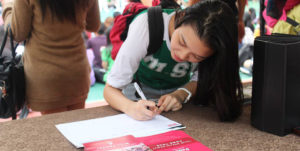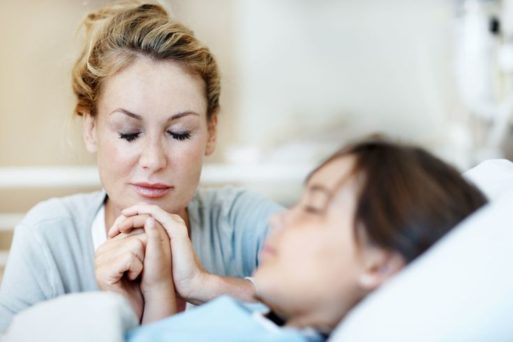Today, SevenPonds speaks with Deanna Santana, the director of public relations for Sierra Donor Services. SDS is a nonprofit organization located in Sacramento, California that coordinates organ and tissue donations in parts of Northern California and Nevada. Her inspiring story and dedication to saving lives directly corresponds to Sierra Donor Service’s mission to connect lives through donation and transplantation, and to make sure every person in need receives the “Gift of Life.”

Credit: donatelife-organdonation.blogspot.com
Kristen Capano: Do organ donors need to die in order to donate organs?
Deanna Santana: Here at Sierra, yes. However, kidney or liver donation can be done through a living donor. Sierra Donor Services only deals with deceased donation.
Kristen: What about living donors?
Deanna: Living donation is facilitated through a transplant center. It can be directed, non-directed, or a chain. Living donors can donate one kidney because it’s possible to survive with only one. They can also donate a portion of their liver since the liver cells will regenerate over time. Living organ donors need to be over 18 years old.
Most living donations are directed donations, which is when someone decides to donate an organ or tissue to a specific person. But people also donate anonymously or to someone they don’t know.
There is also paired donation or paired kidney exchange, which is when two pairs of living kidney donors and transplant candidates who do not have matching blood types “trade donors.” This way, each person receives a kidney transplant from someone with the same blood type as them. There are also Blood-Type Incompatible and Positive Crossmatch donation as well.
Kristen: How is transplanted tissue used?
Deanna: Actually, most transplants are tissue! Tissue donations involve corneas, bone/tendons, heart valves, veins/arteries and skin. So you can see how tissue donation is just as important as donating an entire organ.
Kristen: One of your organization’s goals is to alleviate the critical shortage of organs by increasing the number of donations across the country. What are some techniques that SDS uses to educate the community and promote/secure organ donors?

Credit: thechangeblog.com
Deanna: As Public Education Manager for Sierra Donor Services, this is my specialty. In order to inform mass amounts of people about the misconceptions surrounding organ donation all at once, I usually speak at large events such as health fairs and rotary clubs. Recently I spoke during an event for the Sacramento Kings basketball team. I also would like to go and speak at high schools so that younger generations know what they are signing up for before they go to the DMV.
Kristen: Can you remember any cases throughout your time at SDS that have been especially memorable or touching?
Deanna: There have been many cases that have really touched my heart and they illustrate how important our mission at Sierra is. I am always just amazed at donor families. They are truly the best of mankind.
One memorable event happened to my friend Nicole, whose 11-year-old daughter announced that she wanted to be an organ donor a week before she died of a fatal aneurysm. Nicole, who had not signed up to be a donor before, immediately became one after her daughter’s death. It is a tragic but touching story.
Kristen: It’s like she knew! Hearing stories like that must be one of the hardest parts of your job.
Deanna: Yes, that and informing the community. I speak to so many families who are marginalized by the healthcare system. At the same time, I have to be very empathetic to people who have fears about organ donation because it is what they were taught or conditioned to believe. Most of the time, people are receptive to what I have to say, but there are always those who need more convincing. Sometimes we need to go speak to a certain community multiple times before they are willing to sign up.

Credit: www.haikudeck.com
Kristen: That’s great to hear that you are out changing the way people think about a stigmatized tradition. On the other hand, there must be some pretty rewarding features about your job, right?
Deanna: Absolutely! Every day I get to save and transform lives. And no two days are ever the same.
Kristen: Do you have any advice for people who are currently waiting (or know someone waiting) for an organ donation/transplant?
Deanna: I would tell them to be your own advocate. Get out in the community and tell people that you have signed up. So many people think it won’t happen to them, but you are more likely to need a transplant than die and be able to donate an organ or tissue. Share these stories so that more people will join the registry.
Kristen: Finally, why do you think people should become organ donors?
Deanna: It’s the very best of humanity when people do the right thing just because it’s the right thing to do.

Credit: www.thoughtco.com
Did you miss Part One of Deanna’s interview? Catch up and read it here.

 How Can People Become Organ Donors?
How Can People Become Organ Donors?


 Forest Bathing Eases Grief by Soaking in Nature
Forest Bathing Eases Grief by Soaking in Nature
 The Spiritual Symbolism of Cardinals
The Spiritual Symbolism of Cardinals















